The most up-to-date list of course offerings is always available via View Schedule of Classes on BuckeyeLink.
Note on New GE Program
The university will roll out a new General Education program for new students beginning in Autumn 2022. These GE requirements will be called "General Education - New" or GEN.
Requirements for current students will not change, and they will continue to complete the same GE program — now called the "General Education – Legacy" or GEL.
Italian 2053 - Introduction to Italian Cinema
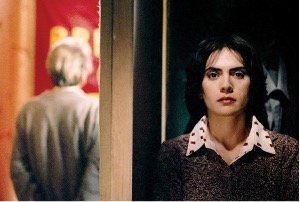
Dr. Giuliano Migliori, 7-week session 2, TR 2:20 - 5:00 pm, Journalism Building 300, 3 credit hours
GEL Visual and Performing Arts, GEL Diversity: Global Studies, GEN Foundation: Literary, Visual & Performing Arts. Taught in English.
Through examining the crossovers between ‘private’ arenas of home and family and ‘public’ realms of politics, the economy, and religion, this course aims to disclose how, in Italian culture, the personal spheres, the political battlefields, and the natural are inextricably linked. This course presents students with an overview of Italian cinema of the last eighty years and we will look in detail at films and serial television by several important Italian directors. We will touch upon major movements in Italian screen history, including Neorealism, ecological and industrial cinema, the spaghetti western filone, political cinema, postcolonial migrant films, and quality television shows unfolding new ways to look at Italian-ness.
Topics and historical periods to be addressed include: Italian fascism (including Italy’s problematic alliance with Nazi Germany and the Partisan Resistance,) the role of cities and industries in the so-called ‘economic miracle’, gender and race relations, the Years of Lead and domestic terrorism, migration crisis, and new Italian Epic. How has the cinematic medium (re)produced different cultural margins of Italy?
This course can count as a course taught in English toward the Italian minor and the Italian or Italian Studies majors.
Italian 2055 - Mafia Movies

Dr. Giuliano Migliori, ONLINE, WF 2:20 - 3:40 pm, 3 credit hours
*This class is fully online. Distance synchronous with asynchronous components.
GEL Visual and Performing Arts, GEN Foundation: Literary, Visual & Performing Arts. Taught in English.
The Mafia in Italy is referred to as an octopus as the organization pervades almost every facet of Italian cultural life. Tony Soprano, Don Vito and Michael Corleone, Lucky Luciano, Robert De Niro, Martin Scorsese, or Christopher Moltisanti are some of the figures that contribute to the myth of the Italian and Italian-American Mafias. Others, such as Jonas Carpignano, Peppino Impastato, and Roberto Saviano explore a new cinematic wave about organized crime. In this course we watch Italian and American mafia movie and television hits, and explore the myth of the Mafia that is so widespread in American popular culture, and trace its histories and receptions as it passes across time and through a variety of cinematic styles. We will question whether there exists a unique American or Italian cinema and television treating Mafias, in its polymorphic nature, and explore how filmmakers from the two countries approach the subject in dissimilar fashions, especially in terms of stereotyping, gender, politics, and representations of violence and alluring criminals.
This course can count as a course taught in English toward the Italian minor and the Italian or Italian Studies majors.
French 2801 - French Cinema
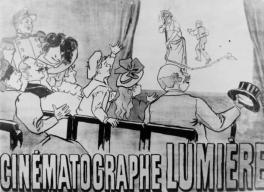
Dr. Julie Parson, TR 12:45 - 2:05 pm, Caldwell Lab 177, 3 credit hours
GEL Visual and Performing Arts, GEN Foundation: Literary, Visual & Performing Arts. Taught in English.
Explore French cinema from its pioneering beginnings to the present day. Get to know the major eras in the history of French Cinema, such as the silent era, Poetic Realism, the Tradition of Quality, the New Wave, and modern French cinema, all within the context of French culture. Learn to discuss film as a text and talk about technical aspects like framing, mise-en-scène, and shot composition. The course is taught in English and all films are subtitled. No background in French or film studies is necessary.
French 2803.01 - Paris

Dr. Ryan Joyce, W 4:10 - 5:10 pm, ONLINE
GEL Cultures and Ideas, GEN Theme: Lived Environments.
What was the city of Paris like in 1789, and how have its geography and society evolved over the last two centuries? By reading and viewing representations of Paris in a variety of media (maps, paintings, photographs, films, and literary and historical texts), we will explore both how the city’s landscape has shaped its society and how its increasingly diverse society has in turn shaped and transformed its landscape to suit Parisians’ evolving needs, desires, and caprices. Each two-week unit will treat representations of a specific event or era in Parisian history that had a significant impact on the city’s organization, architecture, and/or demography, and together the units will give us a general understanding of Parisian history over the last 230 years and of the multiple ways in which that history has been represented, and thus manipulated for various purposes.
French 2804 - Rebels and Runaways: Slave Narratives of the French-Speaking World

Dr. Ryan Joyce, TR 3:55 pm - 5:15 pm, Orton Hall 110, 3 credit hours
GEN Foundation: Race, Ethnicity & Gender Diversity.
From the early modern period to today, the maroon, or “runaway” fugitive slave, has played a vital leading role in shaping U.S. and Caribbean history, literature, and culture. Building from historical sources, fugitive slave narratives, 19th and 20th-century art, film, and literature, and contemporary Black social and political movements, this course will introduce students to the enduring, path-breaking activities of maroons and their descendants in the U.S. and the French-speaking Caribbean. We will explore how maroons rejected their oppression through tactics of flight, practices of resistance and resiliency, and modes of belonging and community-formation.
Course taught in English. This course can count as a course taught in English toward the French or Francophone studies major or the French minor.
FRIT 3054- The 21st-Century Skill: Intercultural Competence for Global Citizenship

30135: Sandhya Shanker & Kathryn Burden, TR 12:45 pm - 2:05 pm, McPherson Lab 1015, 3 credit hours
36126: Dr. Adela Lechintan-Siefer & Professor Janice Aski, TR 3:55 pm - 5:15 pm, Pomerene Hall 280, 3 credit hours
36127: Professor April Weintritt, MW 12:45 pm - 2:05 pm, Bolz Hall 124, 3 credit hours
36128: Dr. Kelly Campbell, TR 2:20 pm - 3:40 pm, University Hall 086, 3 credit hours
36130: Dr. Julie Parson, MW 12:45 pm - 2:05 pm, Ramseyer Hall 110, 3 credit hours
GEL Diversity: Global Studies, GEN Theme: Citizenship for a Diverse & Just World.
Intercultural competence is an essential characteristic for becoming globally-minded and functioning in multiple, diverse, local and non-local networks, and for that reason it has been identified as being among the top ten skills necessary for succeeding in the 21st century. Achieving the skills, knowledge, behaviors and attitudes of interculturally competent global citizens is a lifetime endeavor, so in this course you will acquire the foundations for the journey. This course is divided into four modules: 1) Foundational concepts; 2) Intercultural interactions; 3) Intercultural (communicative) competence; 4) Intercultural competence and citizenship. We will begin by exploring the complexities of the term ‘culture’ and how culture shapes our understanding of ourselves and others, our identity, and our worldview. You will explore your own cultural background by doing a cultural autobiography. You will delve into how implicit biases and stereotypes impact your interactions with others and learn to engage in inclusive practices that make you a better team player by participating in an investigative intercultural team project. In addition, you will learn the unique ways in which learning a world language and experiencing other cultures contribute to the development of intercultural competence.
This course meets the goals and expected learning outcomes of the GE theme category: Citizenship for a just and diverse world. It also counts as a course taught in English for the Italian/Italian studies majors and minor, and the French/French and Francophone studies majors and minor.
Please refer to the Schedule of Classes via BuckeyeLink to view days and times of these offerings.
French Introductory Language
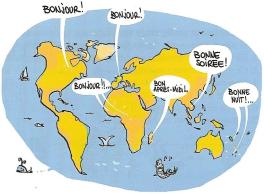
French 1101.01, 1102.01, 1103.01 - Beginning French I, II, and III Classroom (4 credit hours)
French 1101.21, 1102.21, 1103.21 - Beginning French I, II, and III Distance Learning (4 credit hours) 1101.21 also offered as an Asynchronous Distance Learning option (4 credit hours)
French 1101.61, 1102.61, 1103.61 - Beginning French I, II, and III Individualized Distance Learning (2-4 credit hours)
French 1155.01 - Beginning French Review Classroom (4 credit hours)
French 1155.21 - Beginning French Review Distance Learning (4 credit hours)
Italian Introductory Language
Italian 1101.03, 1102.03, 1103.03 - Beginning Italian I, II, and III Blended (4 credit hours)
Italian 1101.71, 1102.71, 1103.71 - Beginning Italian II and III Online (4 credit hours)
French 2101.01 – Introduction to French and Francophone Studies

20039: Dr. Anne Mutidjo, TR 2:20 pm – 3:40 pm, Hagerty Hall 042, 3 credit hours
26025: Professor Adela Lechintan-Siefer, TR 11:10 am - 12:30 pm, Hagerty Hall 046, 3 credit hours
Welcome to the threshold to the French minor and major! In French 2101.01, you will have the opportunity to practice and improve your reading, writing, listening, and speaking skills in French, as well as to continue learning about French and Francophone literatures and cultures through reading, viewing, and interpreting authentic literary and visual texts from around the Francophone world.
French 3101 - French Grammar Review
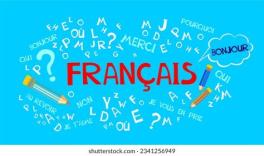
Dr. Gloria Torrini-Roblin, MWF 12:40 pm-1:35 pm, Hagerty Hall 042, 3 credit hours
In this course you will find all the information that you need to speak and write like the French. Review grammar you've seen, learn some you haven't, and practice translations in order to rid your French of those pesky anglicismes! We will look at usage examples in French popular songs, film clips, and short readings, and do plenty of conversation.
French 3102 - French Pronunciation and Performance
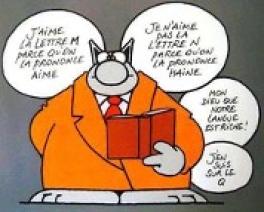
Dr. Kate Schlosser, TR 9:35 am - 10:55 am, McPherson 1046, 3 credit hours
*This course is not open to native and near-native students.
Parlez-vous français ? In this class you will! Newly revamped, French 3102 aims to guide all students toward more accurate pronunciation of the French language in its many iterations throughout the francophone world. We will learn a new alphabet, review rules of pronunciation and diction, then put this knowledge to use through the performance of songs, poetry and plays. We will use film, television and YouTube to explore who speaks French and how they do it. After this class, you will never look at or listen to French the same again!
French 3103 - French Conversation
Dr. Darrell Estes, 7-week session 2, TR 2:20-5:00 pm, University Hall 028
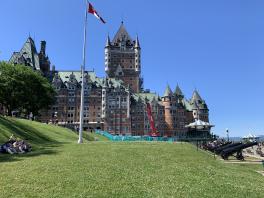
FREN3103 is a course designed to improve students’ conversational French on a variety of topics. Through use of various media (e.g., podcasts, music, video, and print media), students will converse one-on-one and in groups on a variety of topics important in French and Francophone cultures(s) (heritage, art, music, broadcast media, current events, etc.).
As we listen to, watch, read, and practice speaking French in a variety of contexts, we shall reflect on what it means for us—as individuals—to speak French. I hope that each person in the class will find one’s own idiolect amid the endless possibilities that this local, national and world language affords us: an idiolect in which one affirms one’s own unique identity and fluency.
The purpose of this course is not to improve pronunciation or to develop the “correct” accent (whatever that means). The purpose of this course is to improve one’s conversational ability in the French language, and to further develop that ability over a wide range of topics. Students are expected to attend and actively participate in every single class.
FREN3103 is not open to those who have native, or near-native, conversational skills in French.
French 3201 - French Literary and Visual Texts: Society and Struggle
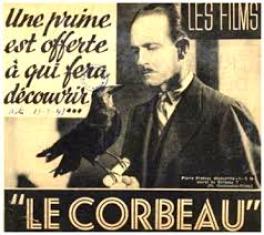
Professor Jennifer Willging, TR 2:20 - 3:40 pm, Hagerty Hall 046, 3 credit hours (taught in French)
In this course we will explore the ways in which literature, and more recently film, have shaped and been shaped by the social, political, moral, and aesthetic preoccupations of the French people through the centuries. We will read or view prose, theater, and film by iconic authors and directors such as Marie de France, La Fontaine, Voltaire, Balzac, Clouzot, and Tati and discuss them in light of the historical and cultural contexts in which they were produced and consumed. Who were the wolves, and who were the lambs in Marie de France’s medieval society? Why did Voltaire’s cracks about priests and Clouzot’s allegory of Occupied France get them both into so much trouble centuries apart? What anxieties about the modernization (read Americanization) of post-World War II France do Tati’s forbidding intercoms and aggressive toasters reveal? These and other such burning questions will be debated in this lively discussion class.
French 3401 - Introduction to Contemporary France

Dr. Beth Bishop, WF 2:20 - 3:40 pm, Hagerty Hall 259, 3 credit hours
I see so many protests in France covered in the media. What’s going on? Is the hijab banned in France or not? What about the burka? It seems like so many young adults in France live with their parents. Why?
If you’d like to explore the answers to questions like these, French 3401 may be the course for you. After completing this course, you should have a much-improved understanding of contemporary French society. We will examine French culture through a general survey of political, social, educational, and cultural structures. We will examine cultural differences, including those within France’s border, so that you may engage more fully with French and international current events and enrich your understanding of French society. Taught in French.
French 4100 - Advanced French Grammar through Current Events
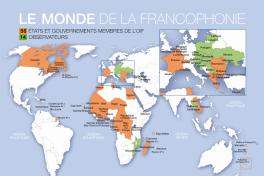
Dr. Gloria Torrini-Roblin, WF 9:35 am – 10:55 am, Hagerty Hall 046, 3 credit hours
Why study advanced French grammar if you are interested in international affairs? Human rights? Food? Finance? Migrants? Medicine? To follow these issues in the francophone media, you need to master the written language by becoming a more educated, informed reader, as well as a more skilled, articulate writer of French.
This course replaces FR 5101 and is required for the French major for those have not yet taken 5101. Students who have already taken 5101 cannot register for this course.
French 4401 – Topics - Creative Writing in French

Professor Benjamin Hoffmann, TR 3:55 - 5:15 pm, Hagerty Hall 062, 3 credit hours
Embark on a linguistic and creative journey in French 4401 – Creative Writing in French. This course invites participants to elevate their French language skills by crafting original texts. Dive into the creative process, refine vocabulary and style, explore fiction and non-fiction techniques, and learn constructive critique. The focus extends beyond language, reinforcing the art of revising both ideas and expressions. Ideal for language enthusiasts and aspiring writers, this seminar promises a supportive community where imagination and eloquence converge.
French 5105 - Occitan and Occitania: The Words and World of the Troubadours

Professor Sarah-Grace Heller, WF 12:45 - 2:05 pm, Hagerty Hall 206, 3 credit hours
Discover the region of Occitania in the south of France, where for centuries people spoke and wrote Occitan AKA Provençal or “langue d’oc,” a romance language at the crossroads of French, Italian, Catalan, and Spanish. Learn this celebrated language of the singer-songwriter Troubadours. Their culture of virtuoso innovation by both men and women poets and patrons flourished at courts such as those of Eleanor of Aquitaine, the counts of Toulouse, and Alfonso of Castille; from Auvergne to Catalonia to Portugal to Genoa and Tuscany, among others. Occitan is still spoken by a minority, despite being repressed for centuries. A useful course for those interested in translation, the broader culture and history of France, medieval studies, or romance languages.
Languages of instruction: French and English
Accommodations made for students from other departments. Students whose major area is not French may translate into that language (Italian, Spanish, English).
Prerequisites: graduate status or FR 4100 or equivalent or two 3000-level French courses, or permission of instructor (students with proficiency in any Romance language will be welcome)
French 5601 – Center of Excellence Colloquium
Professor Benjamin Hoffmann, T 11:30 - 12:30 pm, Online
Since 2020, the Department of French and Italian at The Ohio State University has been recognized by the French Cultural Services in the United States as a member of its prestigious Centers of Excellence network.
Undergraduate and graduate students registered for this workshop will receive one credit hour per semester for attending five to six exciting events organized by the Center of Excellence. Innovative scholars and award-winning novelists will come to OSU to present their groundbreaking work. In addition, graduate students registered for this class will contribute to the French Press literary channel by interviewing a French speaking author about their work.
French 5105 - Occitan and Occitania: The Words and World of the Troubadours

Professor Sarah-Grace Heller, WF 12:45 - 2:05 pm, Hagerty Hall 206, 3 credit hours
Discover the region of Occitania in the south of France, where for centuries people spoke and wrote Occitan AKA Provençal or “langue d’oc,” a romance language at the crossroads of French, Italian, Catalan, and Spanish. Learn this celebrated language of the singer-songwriter Troubadours. Their culture of virtuoso innovation by both men and women poets and patrons flourished at courts such as those of Eleanor of Aquitaine, the counts of Toulouse, and Alfonso of Castille; from Auvergne to Catalonia to Portugal to Genoa and Tuscany, among others. Occitan is still spoken by a minority, despite being repressed for centuries. A useful course for those interested in translation, the broader culture and history of France, medieval studies, or romance languages.
Languages of instruction: French and English
Accommodations made for students from other departments. Students whose major area is not French may translate into that language (Italian, Spanish, English).
Prerequisites: graduate status or FR 4100 or equivalent or two 3000-level French courses, or permission of instructor (students with proficiency in any Romance language will be welcome)
French 5601 – Center of Excellence Colloquium
Professor Benjamin Hoffmann, T 11:30 - 12:30 pm, Online
Since 2020, the Department of French and Italian at The Ohio State University has been recognized by the French Cultural Services in the United States as a member of its prestigious Centers of Excellence network.
Undergraduate and graduate students registered for this workshop will receive one credit hour per semester for attending five to six exciting events organized by the Center of Excellence. Innovative scholars and award-winning novelists will come to OSU to present their groundbreaking work. In addition, graduate students registered for this class will contribute to the French Press literary channel by interviewing a French speaking author about their work.
French 8205 - French and Francophone Studies Across Boundaries
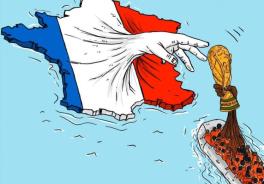
Professor Johanna Montlouis-Gabriel, T 2:20 - 5:00 pm, Hagerty Hall 206, 3 credit hours (in French)
This course traces the significance of France, and especially Paris for Arab and Black populations living in Paris. We will explore Postcolonial Paris chronologically to trace the historical experience, intellectual history, “civil rights movements,” and artistic production of the African diaspora. We will explore Paris as the capital of this diaspora (defined largely as both Maghrebi and Sub-Saharan Africans). We will discuss the presence of Afro-descendants as foreigners, immigrants as well as French citizens and see how they belong to, appropriate, reject, interact with this Parisian space. We will take an interdisciplinary approach and discuss topics as wide as literature, film, music, sports, arts among other disciplines. Seminar taught in French.
Italian 2102 - Contemporary Italian Society

Dr. Rosa Di Grottole, TR 9:35 am - 10:55 am, Hagerty Hall 251, 3 credit hours
How did we arrive at the contemporary forms of Italian culture that one can find in Rome today? As the adage goes, "All roads lead to Rome," and indeed diverse trajectories have brought
immigrants from within Italy and from abroad to call the capital city home. Deep and lasting transformations of Italian culture and society are more and more apparent; the influence of Italy’s institutions is waning, as a result of shifting and broadening traditions, values, and perspectives of what was once dominant and normative Italian cultural beliefs on religion, gender, family, and more. All these transformations are at play in the principal text of this course: the best-selling 2006 novel Clash of Civilizations for an Elevator in Piazza Vittorio by Amara Lakhous, an acclaimed Algerian-Italian author. Particularly when reading the principal novel but also in additional readings and videos, we will delve into the convergence of 20th and 21st century Italian cultural history and language expression through analysis of a variety of
contemporary speech registrars, dialects, European cultural reference points, and immigration and refugee crises at the turn of the century.
In this course we explore modern and contemporary Italian society as we focus on the four language skills: listening, reading, writing, and speaking. Since you are transitioning from the elementary to the intermediate level, more emphasis will be placed on developing your reading skills, so you will be exposed to a lot of authentic Italian texts of different lengths and in different genres. However, your listening, writing, and speaking skills will not be ignored! Grammar will be reviewed and tested throughout the course.
The targeted structures are a review of nouns and adjectives; regular and irregular present indicative verbs; the passato prossimo, the imperfect, the past perfect (trapassato prossimo) and the remote past (passato remoto); the subjunctive mood, hypothetical constructions, and relative and interrogative pronouns.
Italian 3223 - Regions of Italy
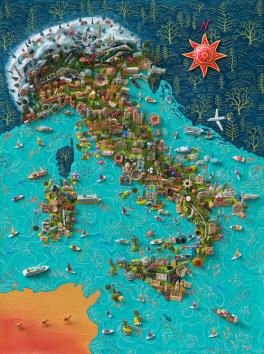
Professor April Weintritt, MW 2:20 - 3:40 pm, Lazenby Hall 018, 3 credit hours
Studying the histories and cultures of a variety of regions of Italy, we will continue the development of communicative and discursive abilities and language proficiency skills: speaking, writing, reading, and listening. Expanding and reflecting upon intercultural competence attitudes and skills are also key elements of this course. The instructional approach taken in this course is Content-Based Instruction, which is a holistic approach to world language education; that is, you will develop your language skills while learning about a particular topic. Targeted grammatical structures in this course are included in each chapter focusing on a different Italian region and self-reflection tasks afford an opportunity to think deeply about our relationships to Italian histories and cultures.
Italian 4225 - Italian Identities
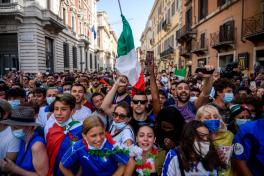
Professor Jonathan Mullins, TR 2:20 - 3:40 pm, Enarson Classroom Bldg 326, 3 credit hours
What does it mean to be Italian, and how is such a socio-cultural identity complicated by questions of nationality, region, race and gender? Through four units, each dedicated to one of these aspects of identity, this course will seek to answer these two questions. It will do so though investigation of, on one hand, written and audiovisual sources, and on the other, interviews with Italians in which students will prepare questions and analyze their responses as evidence of larger social, cultural, and political dynamics.
Italian 8193 - The Italian Canon and its Others in the Long 20th Century
Professor Jonathan Mullins, W 5:30pm-8:00pm, Hagerty Hall 206, In Italian
The dialectic between center and margin still persists in the study of Italian cultural production in the early 2020s despite the emergence of a number of schools of thought that ostensibly have sought to dismantle this conceptual topos, be it longstanding ones, such as Marxist and Gender Studies approaches, and others quite new, such as Ecocriticism and the study of race. To think about the question of canon formation, we will read a number of literary works, including Alba de Cespedes, Patrizia Cavalli, Ennio Flaiano, Natalia Ginzburg, Curzio Malaparte, Alda Merini and Alberto Moravia, not to mention New Italian Epic, as well as examine narrative and experimental cinema from figures such as Silvano Agosti, Michelangelo Antonioni, Emma Dante, Elio Petri and others. We will explore Italian scholarship on the question of how canons are formed, but will also read Jacques Derrida, Deleuze and Guattari and John Guillory. IN ITALIAN.
Film Studies 3660 - Documentary Film Studies
Professor Maggie Flinn, TR 9:35 am - 10:55 am, Theatre, Film & Media Arts 215, Hybrid course, 3 credits
In this class we will watch a selection of films that challenge the definitions and limits of documentary filmmaking, either by setting a new standard for what would constitute documentary during their respective periods, or by willfully subverting the codes of documentary practice as commonly practice in their period. The class is structured such that we will view films in thematic groups of two or more, in order to compare and contrast how different aesthetic strategies can be used to approach similar material. The films we will view all navigate problems of how we (as viewers and creators of documentary film) learn/navigate who we are and how we fit in the world via the stories told in nonfiction filmmaking.
